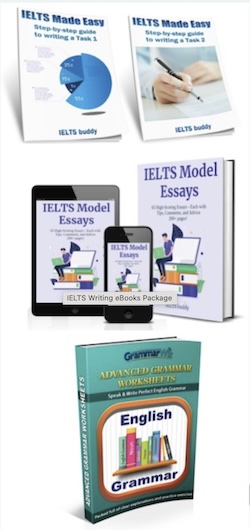- Home
- Speaking Lessons
- Speaking About Change
Speaking About Change in Part 3
Questions that will involve you speaking about change are common in part 3 of the IELTS test.
Therefore you need to make sure that you are the grammar and phrases to be able to do this.
You can also watch a video on this lesson:

Often you are asked to compare a situation now with the same situation in the past.
Common time periods include; 20 years, 30 years, when your parents were young and when your grandparents were young.
This lesson will provide you with some useful grammar for speaking about change in the IELTS test, and how to spot these types of question.
Examples:
- How are the eating habits now in your country different from eating habits in the past?
- Are the types of leisure activities that are popular today the same as those that were popular when your parents were young?
- How have shopping habits changed over recent years?
- Have the types of transport people use changed much over the last few decades?
Used to
One way of describing how things have changed is to use “used to”. We use it to refer to facts or situations that were true in the past but are not true now. When the change occurred is not important.
Example:“Vietnam used to be a colony of France, (but now it is independent)”
“Jimmy Carter used to be the President of the United States, (but now he isn’t.)”
This can, of course be used to give personal information.
“I used to smoke, (but I gave up 2 years ago.)”
“Mike used to be a detective in the CID, (but now he’s a teacher)”
Comparatives
In these types of questions the function being tested is “compare”, so using comparatives is obviously a good way of answering the question and speaking about change.
Example:
"Thirty years ago, the streets were much quieter than now.”
“I think that reading was much more popular in the past.”
When talking about how things are different now, the present perfect is often used as well as the present simple.
“The streets have become much noisier these days.” (Notice, a specific time is not needed)
“Reading is much less popular than it was in the past.”
Speculation
Particularly for some of the longer periods, you may not be sure of exactly how things have changed and it is all right to speculate.
“Would” can be used for strong speculation.
Example:
“I think it would have been harder for my grandfather to find out about international news, because there was no radio or T.V in his village.”
“In the past, people would have travelled less often.”
When you are not so sure you can use other words. (perhaps, possibly, might, may, etc.)
“I’m not sure but, perhaps, they might have studied less science thirty years ago”
“Possibly, in my father’s day, people could have played more sport.”
Question types
Questions about changes tend to be phrased in ways like these:
“How do you think … is different from thirty years ago?”
“In what ways has … changed from when your parents were young?
“How is … different from twenty years ago?”
Of course, the examiner may choose to word the question in other ways.
Comments
Any comments or questions about this page or about IELTS? Post them here. Your email will not be published or shared.
















